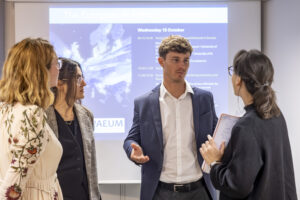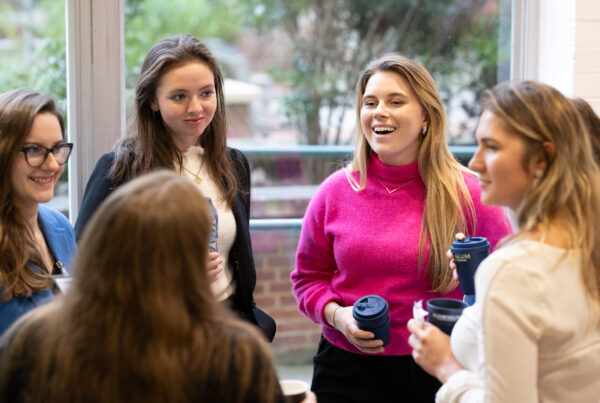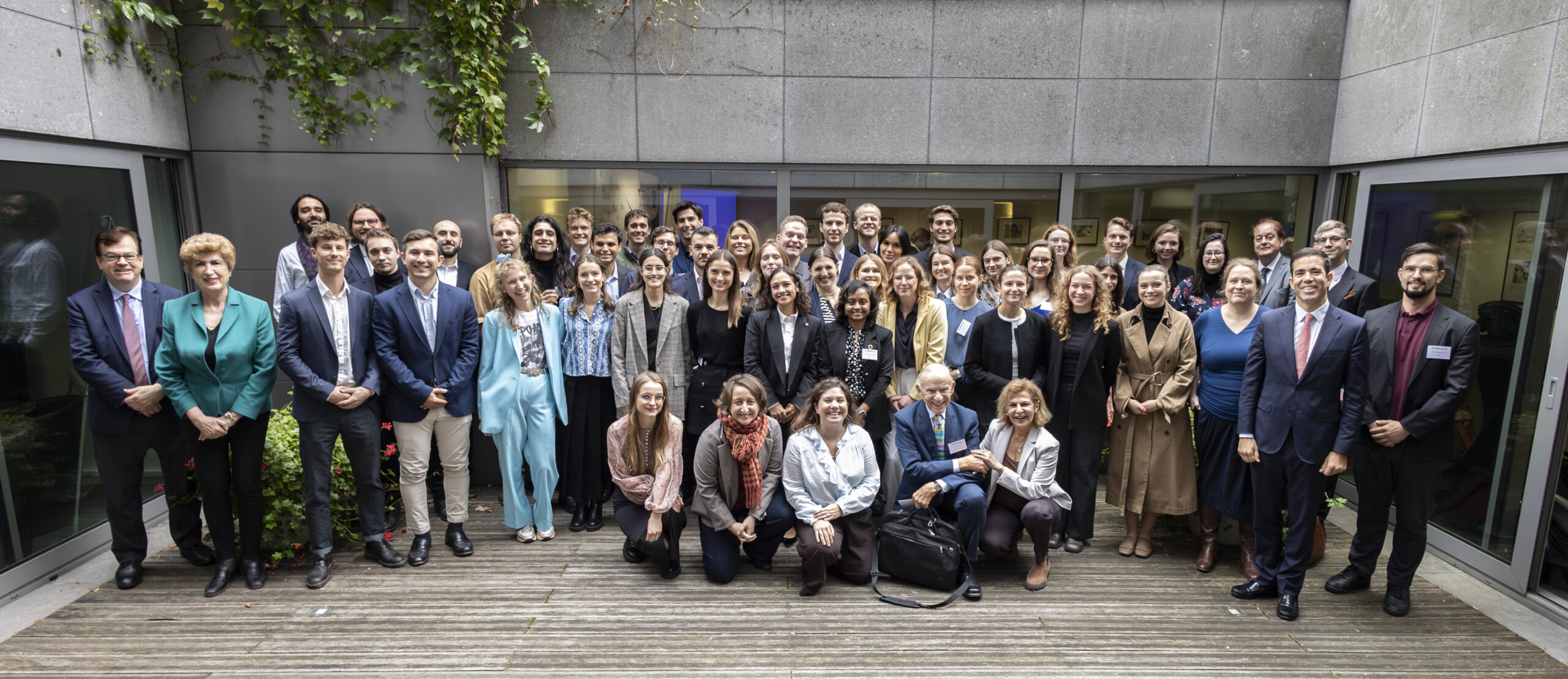
From 13 to 16 October the Europaeum took the Scholars and a group of Core students to Brussels to think about key issues facing Europe. We combined a conference celebrating the end of this cycle of the Scholars Programme and our annual Brussels Policy Seminar. The Scholars presented their policy projects alongside leading experts in the field and had an afternoon with alumni. The Core students on our Brussels Policy Seminar meanwhile visited key European Institutions where they focused on Europe’s Strategic Autonomy.
As the European Union navigates an increasingly complex geopolitical landscape, Strategic Autonomy has emerged as a defining priority for European policymakers. From technological sovereignty and supply chain resilience to defence capabilities and energy independence, the EU is actively pursuing greater autonomy across multiple domains while maintaining its commitment to multilateral cooperation and global partnerships. Meanwhile the Conference focused on the EU institutions and key issues facing EU governance – with discussions of the current commission and European challenges and potential. Democratic resilience depends on a robust media environment and depolarising politics and society; the EU’s commitment to human rights means humane migration policies and a more progressive approach to what behaviours should be criminalised; tackling the climate crisis and social fragmentation requires innovative solutions in urban environments, not just rural ones. We heard from a range of officials, policymakers, journalists, and outside observers about how its efforts are faring in this sphere.
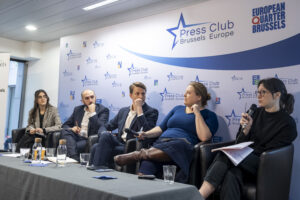
We started the conference with a lively discussion of EU migration policy. The Scholars presented their proposals for reception centre conditions, with experts from think tanks covering the politics of the Migration and Asylum Pact and migration and the EU labour market. Another panel built around one of the Scholars’ projects – on the decriminalisation of consensual sex work in the EU – with experts on the recent Belgian legislation and on decriminalising aspects of drug use and the drug trade. Over dinner the Scholars were treated to insights from Klaus Welle on how Trump 2.0 is reshaping geopolitics and traditional transatlantic alliances and had a chance to discuss their ideas with Brussels-based experts further.
On Tuesday the Scholars who had been working on tackling disinformation and making quality media more resilient shared the floor with a high-ranking official from DG Connect and a local journalist. The debate focussed on how the EU treats journalists and what more can be done for a robust democratic information ecosystem. The themes of democratic resilience continued in our keynote roundtable on depolarising politics and society in Europe. With contributions from policy experts, former politicians, and people with experience of campaigning, we heard an energetic debate about whether some forms of polarisation could be healthy for democracy and what we can learn from polarisation. We were also invited to reflect on whether society may be more fractured, or multipolar, than split into binary poles. A keynote conversation between our Executive Director, Anthony Teasdale and Jim Cloos discuss the EU’s potential and the ways in which the EU institutions work (sometimes together, sometimes against one another) to effect change within the Union. Rounding off the day was a second roundtable assessing the extent to which the second von der Leyen commission was living up to its promises. There was relative agreement that her style of governing and the structure of the commission concentrated power into her own hands more than in her first, and that there may be a time limit to her claims to be responding to crises.
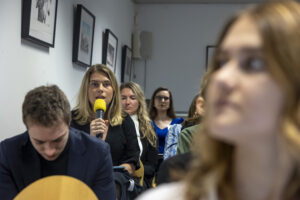
On Wednesday a final group of Scholars presented their work on community urban gardens alongside an expert from Eurocities. The conversation focussed on the benefits and challenges (space, management, financing, resources, and awareness) of urban greening. We were also joined by an eminent alumnus of the Scholars Programme, Portuguese minister of the presidency His Excellency António Leitão Amaro. His speech focussed on the importance of moral leadership, collaborative work, multiple perspectives, and polite disagreement in policy making, before turning to his thoughts on migration policy.
After two days of intense engagement between the Scholars and policy experts, it was time for our assessors to announce the group who had won the prize for best project. The assessors praised the creativity and attention to human experience of all of the projects, but ultimately chose the project on migration reception monitoring ‘From Data to Dignity’.
In the afternoon, the Core students visited the European Parliament, where they heard from officials and, in the evening, they rejoined the Scholars for a roundtable on strategic autonomy, which concentrated on economics, defence, and security.
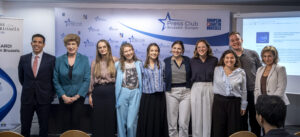
The following day the Core students visited the European Council and External Action Service. They also had a working lunch with journalists from the Financial Times and The Guardian who explained to them what it was like to cover the institutions for their media organisations. The journalists also gave their perspectives on the Seminar theme.
Several of our speakers and a number of alumni of various Europaeum progammes joined us for our conference dinner on the night of Wednesday 15 October, sharing ideas over policy and the challenges facing Europe in a convivial setting. We were also thrilled that Maria João Rodrigues shared some reflections on her own career with the crowd, providing inspiration for our future policy makers. The Scholars ended their part of the week energised with lots of useful feedback and avenues to pursue their projects further should they wish to do so.
